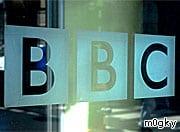The BBC has launched a public consultation to find out how the corporation’s viewers feel about its diversity strategy.
The broadcaster has faced repeated accusations of showing an anti-Christian bias in its content in recent years.
Now the BBC has set up an online questionnaire, which closes on 07 January 2011, that allows viewers and the corporation’s employees to have their say.
Diversity
The responses gathered will be fed into the corporation’s new diversity strategy which is due to be published next April.
Amongst a number of questions the survey asks respondents whether they consider the BBC to be a “fair and inclusive organisation”.
It also asks people what they consider to be “the most pressing equality and diversity issue” for the BBC.
Eastenders
Earlier this year the BBC was forced to defend an EastEnders storyline after outraged viewers accused the corporation of anti-Christian bias.
The complaints centered around a plotline on EastEnders which portrayed Lucas Johnson, a Christian Pentecostal pastor, as a deranged killer whose deeds were motivated by his Christian faith.
Viewers watched the pastor, played by actor Don Gilet, failing to help his ex-wife when she was dying, strangling a love rival to death, and attacking his current on-screen wife.
Secularist
Last year an ex-BBC presenter claimed that the BBC is keen on programmes which attack churches, and that there was a wider secularist campaign “to get rid of Christianity”.
Don Maclean, the former Radio 2 religious programme host, also said that the broadcaster is “keen on Islam”.
Mr Maclean said: “you don’t see any programmes on Anglicanism that don’t talk about homosexual clergy and you don’t see anything on Roman Catholicism that doesn’t talk about paedophiles.
“They seem to take the negative angle every time. They don’t do that if they’re doing programmes on Islam. Programmes on Islam are always supportive.”
Fanatical
And in June 2009 it was revealed that the BBC Trust had rejected complaints against a TV drama that showed a fanatical British Christian beheading a moderate Muslim.
The offending episode of “Bonekickers” was aired in July 2008.
The BBC Trust rejected suggestions that the drama associated fanatical Christianity with evangelicalism and gave an offensive portrayal of evangelical Christians.
Ignorance
But Daily Telegraph writer, Damian Thompson, said: “We are deep into the realms of BBC bias and ignorance here.
“Only a BBC drama series would, to quote the complainant, ‘transfer the practice of terrorist beheadings from Islamist radicals to a fantasised group of fundamentalist Christians’.”
In April 2009 Jonathan Wynne-Jones, a national newspaper journalist, warned that the frequent television portrayals of Christians as absurd make it more difficult for believers to defend themselves.
Nutters
Writing on his blog Mr Wynne-Jones warned that a spate of recent storylines in a number of soaps had sent the clear message that “Christians are nutters”.
Last month new editorial guidelines were unveiled which said that the BBC must show due impartiality when covering the topic of religion.
The BBC’s editorial guidelines, which cover TV, radio and the internet, are reviewed every five years
The editorial rules also brought in restrictions on the use of “humiliating and derogatory remarks”.
In 2008 Mark Thompson, the Director General of the BBC, said that Islam should be treated more sensitively than Christianity because Muslims are less integrated and more of a minority group.
In 2006 Andrew Marr, the BBC’s former chief political correspondent, said: “The BBC is not impartial or neutral. It’s a publicly-funded, urban organisation with an abnormally large number of young people, ethnic minorities and gay people.
“It has a liberal bias not so much a party-political bias. It is better expressed as a cultural liberal bias.”

